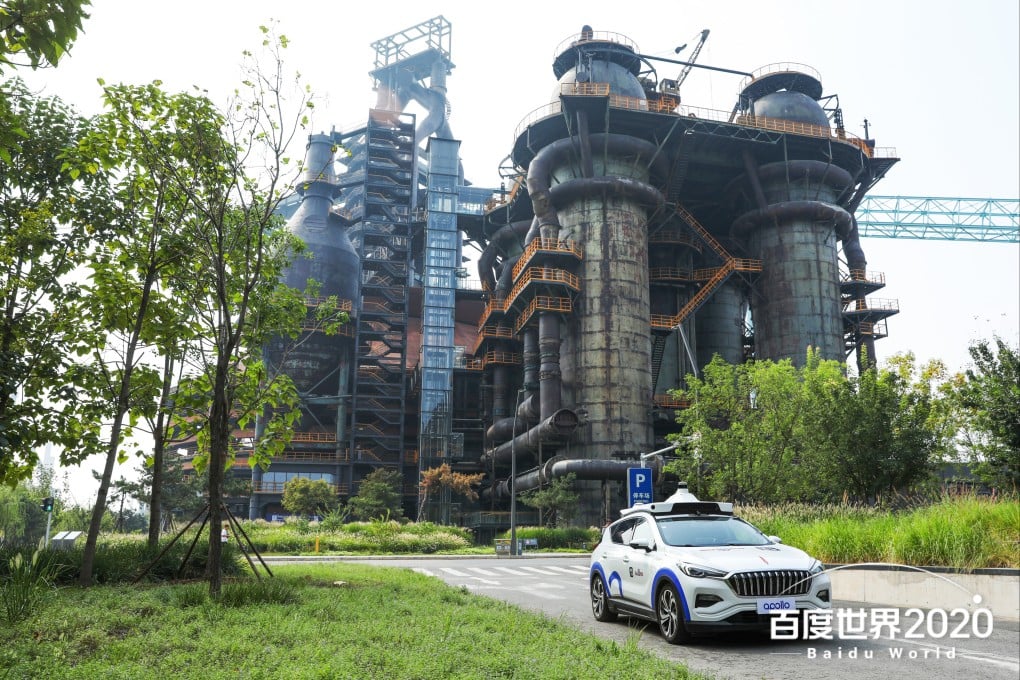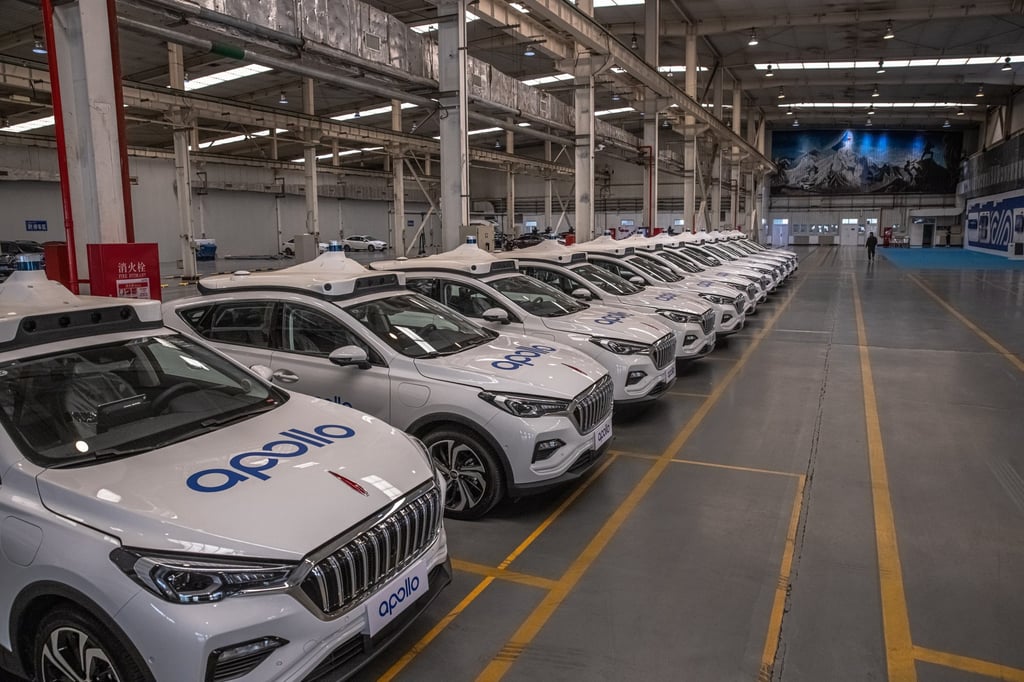Baidu will offer first paid robotaxi service in China next month, letting people hail rides without drivers
- Baidu will allow people to order autonomous taxis on May 2 in an industrial park in western Beijing
- Huawei, Didi Chuxing and traditional carmakers are all racing to develop autonomous driving tech in China

Baidu will start China’s first paid robotaxi service on May 2 in Beijing’s Shougang Industrial Park, one of the venues for the 2022 Winter Olympics, the company announced on Thursday.
Baidu will charge passengers 30 yuan (US$4.60) for a single ride within the park, the company said, and it will give visitors a 40-yuan voucher to visit the Sangaolu Museum in the area. The park, on the western outskirts of the Chinese capital, spans 8.6 kilometres, according to a report from Accenture.
Baidu’s robotaxis are adapted from electric vehicles by Chinese home-grown luxury auto brand Hongqi, owned by state-owned carmaker FAW Group.

Many companies are racing to develop their own autonomous driving technologies, with artificial intelligence firms and traditional carmakers investing heavily in the area. Start-ups and tech giants alike have poured into the industry, which is expected to be worth 399 billion yuan (US$61.5 billion) by 2025.
Telecoms equipment giant Huawei Technologies Co said it will invest US$1 billion in researching self-driving and electric car technologies as it seeks new opportunities for growth amid a stuttering smartphone business hampered by US sanctions.